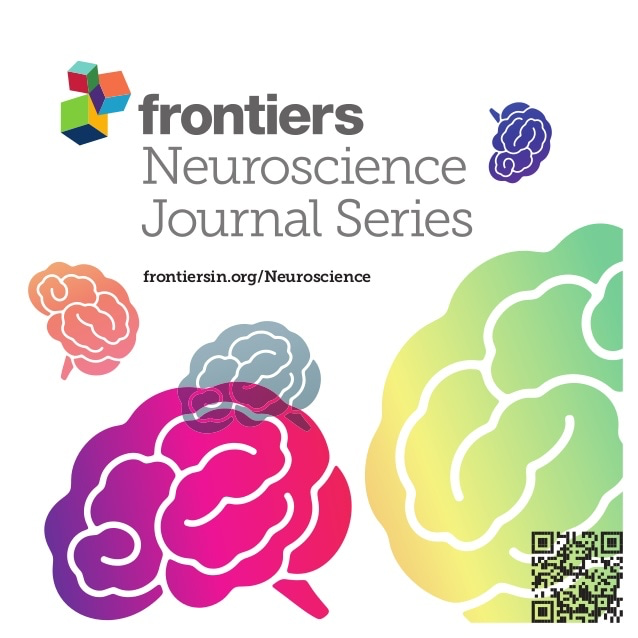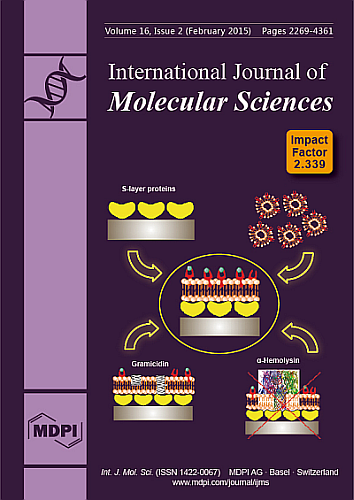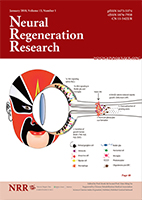Neurodegenerative Diseases
How to submit an article:
- Registered users can submit any published journal article that has a unique DOI (Digital Object Identifier) name or link to Research Hub.
- For example, you can paste the full DOI link:
https://doi.org/10.1109/5.771073or just the DOI name:10.1109/5.771073into the field above and click submit. - The person who is first to submit a valid article to Research Hub will forever be credited for it, and every article submission earns you +6 Research Points.
Related Topics
Published research studies are articles that present the findings of original research that has undergone a peer-review process and has been made publicly available in scholarly journals, books or other media.

Amides from Zanthoxylum bungeanum Maxim. (Rutaceae) are promising natural agents with neuroprotective activities
2023 Jul Arabian Journal of Chemistry Li RL, Duan HX, Wang LY, Liang Q, Wu C, Peng W
it is clear that amides in Hua Jiao has a wide range of therapeutic effects in neurodegenerative diseases. At the same time, due to its wide source of raw material, it is an excellent source of natural drugs.
Review Article Neuroprotective
A mechanistic review of pharmacological activities of homeopathic medicine licorice against neural diseases
2023 Mar 06 Frontiers in Neuroscience Zulfugarova P, Zivari-Ghader T, Maharramova S, Ahmadian E, Eftekhari A, Khalilov R, et al.
Licorice extract and/or its active components can be used safely in therapeutic doses for optimizing the management of a multiple neurodegenerative disorders, and hampering the extent of neural tissue injury and neurologic deficits subsequent to cerebrovascular accidents.
Review Article Gan Cao Licorice Neurological Disorders Neurodegenerative Diseases
Magnesium and the Brain: A Focus on Neuroinflammation and Neurodegeneration
2022 Dec 23 International Journal of Molecular Sciences Maier JAM, Locatelli L, Fedele G, Cazzaniga A, Mazur A
Review Article Alzheimer's Disease Neurodegenerative Diseases Multiple Sclerosis Parkinson's Disease MagnesiumMagnesium, essential for harmonising nerve signals and preserving the blood-brain barrier, may be linked to neurodegenerative disorders when its balance is disrupted.

Green Tea Catechins Attenuate Neurodegenerative Diseases and Cognitive Deficits
2022 Nov 06 Molecules Afzal O, Dalhat MH, Altamimi ASA, Rasool R, Alzarea SI, Almalki WH, et al.
Review Article Green Tea Cognitive Function Multiple Sclerosis Parkinson's Disease Neuroprotective Alzheimer's Disease Neurodegenerative DiseasesGreen tea's catechins demonstrate therapeutic effects against neurodegenerative diseases via anti-inflammatory, antioxidant actions, and activating diverse brain cellular pathways.

Recent Studies on Protective Effects of Walnuts against Neuroinflammation
2022 Oct 18 Nutrients Tan B, Wang Y, Zhang X, Sun X
Review Article Cognitive Function Neurodegenerative Diseases Anti-Inflammatory WalnutWalnuts, rich in anti-inflammatory ingredients, potentially regulate neuroinflammation, improve cognitive function, reduce oxidative stress, and maintain gut health, thereby suggesting their use against neurodegenerative diseases.
Research insights are moderated by the Research Hub team and offer an at-a-glance overview of interesting research findings.

2022 International Journal of Molecular Sciences
Magnesium, essential for harmonising nerve signals and preserving the blood-brain barrier, may be linked to neurodegenerative disorders when its balance is disrupted.
Review Article Alzheimer's Disease Magnesium Multiple Sclerosis Parkinson's Disease
Magnesium and the Brain: A Focus on Neuroinflammation and Neurodegeneration
Maier JAM, Locatelli L, Fedele G, Cazzaniga A, Mazur A

2022 Molecules
Green tea's catechins demonstrate therapeutic effects against neurodegenerative diseases via anti-inflammatory, antioxidant actions, and activating diverse brain cellular pathways.
Review Article Alzheimer's Disease Cognitive Function Green Tea Multiple Sclerosis Neuroprotective
Green Tea Catechins Attenuate Neurodegenerative Diseases and Cognitive Deficits
Afzal O, Dalhat MH, Altamimi ASA, Rasool R, Alzarea SI, Almalki WH, et al.

2022 Nutrients
Walnuts, rich in anti-inflammatory ingredients, potentially regulate neuroinflammation, improve cognitive function, reduce oxidative stress, and maintain gut health, thereby suggesting their use against neurodegenerative diseases.
Review Article Anti-Inflammatory Cognitive Function Walnut
Recent Studies on Protective Effects of Walnuts against Neuroinflammation
Tan B, Wang Y, Zhang X, Sun X

2022 Foods
Bananas and plantains contain compounds with anti-inflammatory, anti-apoptotic, and antioxidative properties that hold promise for potentially reversing neurological disorders.
Anti-Apoptotic Anti-Inflammatory Antioxidant Apple Banana
Suitability of Banana and Plantain Fruits in Modulating Neurodegenerative Diseases: Implicating the In Vitro and In Vivo Evidence from Neuroactive Narratives of Constituent Biomolecules
Oyeyinka BO, Afolayan AJ

2021 Foods
Fermented soybean products alleviate and possibly prevent neurodegenerative conditions, including Parkinson's and Alzheimer's diseases.
Review Article Alzheimer's Disease Parkinson's Disease Soybean
Fermented Soy Products: Beneficial Potential in Neurodegenerative Diseases
Jang CH, Oh J, Lim JS, Kim HJ, Kim JS
Review Articles
Review articles summarise and critically evaluate the current state of research on a specific topic or field by synthesising multiple primary research studies.

Amides from Zanthoxylum bungeanum Maxim. (Rutaceae) are promising natural agents with neuroprotective activities
2023 Jul Arabian Journal of Chemistry Li RL, Duan HX, Wang LY, Liang Q, Wu C, Peng W
it is clear that amides in Hua Jiao has a wide range of therapeutic effects in neurodegenerative diseases. At the same time, due to its wide source of raw material, it is an excellent source of natural drugs.
Review Article Neuroprotective
A mechanistic review of pharmacological activities of homeopathic medicine licorice against neural diseases
2023 Mar 06 Frontiers in Neuroscience Zulfugarova P, Zivari-Ghader T, Maharramova S, Ahmadian E, Eftekhari A, Khalilov R, et al.
Licorice extract and/or its active components can be used safely in therapeutic doses for optimizing the management of a multiple neurodegenerative disorders, and hampering the extent of neural tissue injury and neurologic deficits subsequent to cerebrovascular accidents.
Review Article Gan Cao Licorice Neurological Disorders Neurodegenerative Diseases
Magnesium and the Brain: A Focus on Neuroinflammation and Neurodegeneration
2022 Dec 23 International Journal of Molecular Sciences Maier JAM, Locatelli L, Fedele G, Cazzaniga A, Mazur A
Review Article Alzheimer's Disease Neurodegenerative Diseases Multiple Sclerosis Parkinson's Disease MagnesiumMagnesium, essential for harmonising nerve signals and preserving the blood-brain barrier, may be linked to neurodegenerative disorders when its balance is disrupted.

Green Tea Catechins Attenuate Neurodegenerative Diseases and Cognitive Deficits
2022 Nov 06 Molecules Afzal O, Dalhat MH, Altamimi ASA, Rasool R, Alzarea SI, Almalki WH, et al.
Review Article Green Tea Cognitive Function Multiple Sclerosis Parkinson's Disease Neuroprotective Alzheimer's Disease Neurodegenerative DiseasesGreen tea's catechins demonstrate therapeutic effects against neurodegenerative diseases via anti-inflammatory, antioxidant actions, and activating diverse brain cellular pathways.

Recent Studies on Protective Effects of Walnuts against Neuroinflammation
2022 Oct 18 Nutrients Tan B, Wang Y, Zhang X, Sun X
Review Article Cognitive Function Neurodegenerative Diseases Anti-Inflammatory WalnutWalnuts, rich in anti-inflammatory ingredients, potentially regulate neuroinflammation, improve cognitive function, reduce oxidative stress, and maintain gut health, thereby suggesting their use against neurodegenerative diseases.
Clinical Trials
Clinical trials are research studies that involve people and are conducted to evaluate the safety and efficacy of new treatments or interventions, such as drugs, medical devices, or behavioural therapies.
Study Protocols
Published study protocols are detailed plans that outline the objectives, methodology, statistical analyses, and organisation of a research study that have been made publicly available for others to review and use as a reference.
Presentation Slides

Review Article
Magnesium, essential for harmonising nerve signals and preserving the blood-brain barrier, may be linked to neurodegenerative disorders when its balance is disrupted.
Maier JAM, Locatelli L, Fedele G, Cazzaniga A, Mazur A

Review Article
Green tea's catechins demonstrate therapeutic effects against neurodegenerative diseases via anti-inflammatory, antioxidant actions, and activating diverse brain cellular pathways.
Afzal O, Dalhat MH, Altamimi ASA, Rasool R, Alzarea SI, Almalki WH, Murtaza BN, Iftikhar S, Nadeem S, Nadeem MS, Kazmi I

Review Article
Walnuts, rich in anti-inflammatory ingredients, potentially regulate neuroinflammation, improve cognitive function, reduce oxidative stress, and maintain gut health, thereby suggesting their use against neurodegenerative diseases.
Tan B, Wang Y, Zhang X, Sun X

Bananas and plantains contain compounds with anti-inflammatory, anti-apoptotic, and antioxidative properties that hold promise for potentially reversing neurological disorders.
Oyeyinka BO, Afolayan AJ

Review Article
Fermented soybean products alleviate and possibly prevent neurodegenerative conditions, including Parkinson's and Alzheimer's diseases.
Jang CH, Oh J, Lim JS, Kim HJ, Kim JS

Review Article
Saffron shows potential as a promising therapeutic agent in treating neurodegenerative ocular diseases.
Ramírez JM, Salazar JJ, Fernández-Albarral JA, de Hoz R, Ramírez AI, López-Cuenca I, Salobrar-García E, Pinazo-Durán MD

Experimental Study
Honey, specifically its polyphenols, show promising signs of enhancing memory and counteracting neurodegenerative diseases by reducing oxidative stress and neuroinflammation.
Mijanur Rahman M, Gan SH, Khalil MI

Experimental Study
Tremella fuciformis, a mushroom, shows potential as a protective agent against neurodegenerative diseases like Alzheimer's by promoting cell growth and reducing toxicity.
Park KJ, Lee SY, Kim HS, Yamazaki M, Chiba K, Ha HC
Executive Summary
Write an executive summary in the form of a blog article on the topic of "Research into Chinese medicine treatment for Neurodegenerative Diseases" summarising the research below and using language that can be easily understood by patients and avoiding medical jargon using a professional and caring tone of voice.
Write an executive summary in the form of a blog article on the topic of "Researched Chinese medicine treatments for Neurodegenerative Diseases" summarising the research below in an objective and easy to understand way, and using language that can be easily understood by patients. Group the article into Chinese medicine treatments first, followed by nutrition and other treatments. Avoid using medical jargon and use a professional and caring tone of voice.
Write me a concise but easy to understand executive summary on the topic of "Chinese medicine treatments for Neurodegenerative Diseases" based on the following research that I will give you. Your summary should be 2 paragraphs long in Australian English spelling and include references to the studies.
A Review Article published in 2022 in the journal International Journal of Molecular Sciences found that Magnesium, essential for harmonising nerve signals and preserving the blood-brain barrier, may be linked to neurodegenerative disorders when its balance is disrupted. The researchers performed a narrative review, beginning with a quick overview of the role of magnesium in the brain. Magnesium is crucial for healthy nerve signal transmission and the upkeep of the blood-brain barrier, which protects the brain from harmful substances in the blood. Then, they discussed evidence suggesting a connection between disrupted magnesium balance and a variety of neurodegenerative disorders. In the discussion of the results, it was posited that a deficiency in magnesium might contribute to low-grade systemic inflammation, which is common in many illnesses. Specifically, they argued that such inflammation in the brain is a characteristic feature of neurodegenerative diseases. The review found evidence that disruptions in the body's magnesium balance could be associated with multiple sclerosis, Alzheimer's, and Parkinson's diseases.
A Review Article published in 2022 in the journal Molecules found that Green tea's catechins demonstrate therapeutic effects against neurodegenerative diseases via anti-inflammatory, antioxidant actions, and activating diverse brain cellular pathways. The research primarily evaluates the effect of polyphenolic compounds found in green tea, known as catechins, on neurodegenerative diseases. By conducting several interventional and observational studies on humans, the research explores the anti-cancer, anti-obesity, antidiabetic, anti-inflammatory, and neuroprotective properties of these compounds. The biological, pharmacological, antioxidant, and metal chelating abilities of catechins, particularly their influence on different cellular pathways within the brain, are intensively studied. The results elucidate that catechins exhibit multiple neuroprotective effects. Their anti-inflammatory and antioxidant properties help to inhibit excessive production of cytokines, and inflammatory pathways, while also controlling metal ions and free radicals. Researchers have further established that catechins may curb the phosphorylation of the tau protein and aggregation of amyloid beta, both key markers in neurodegenerative diseases. Additionally, these compounds show potential in reducing alpha-synuclein levels and augmenting dopamine levels. Hence, they significantly contribute to the prevention and treatment of neurodegenerative diseases, including Alzheimer's, Parkinson's, multiple sclerosis, and cognitive deficits.
A Review Article published in 2022 in the journal Nutrients found that Walnuts, rich in anti-inflammatory ingredients, potentially regulate neuroinflammation, improve cognitive function, reduce oxidative stress, and maintain gut health, thereby suggesting their use against neurodegenerative diseases. The methodology of the research includes a comprehensive review of the existing studies and experiments on walnuts and their active ingredients. These ingredients include large amounts of unsaturated fatty acids, peptides, and phenolic compounds known for their anti-inflammatory effects. Various studies covering the effect of these ingredients on the brain health of both rats and humans were analyzed. Specifically, the regulation of microglia activation induced by substances like amyloid β or lipopolysaccharides, the inhibition of peripheral inflammation led by macrophages, and the effects on oxidative stress and gut microbes were scrutinized. In the discussion of results, the studies presented compelling evidence of the beneficial effects of walnuts and their components on neuroinflammation and potential ways to counteract neurodegeneration. There seems to be a consensus in the experimental investigations that the walnut’s active ingredients can reduce inflammation and oxidative stress while maintaining gut homeostasis. They also show promise in improving cognitive functions and memory in both rats and humans. However, it was noted that the evidence from human clinical studies is not as abundant or conclusive as the experimental work, although the potential of walnut-based functional foods in mitigating neurodegenerative diseases was recognized.
A published in 2022 in the journal Foods found that Bananas and plantains contain compounds with anti-inflammatory, anti-apoptotic, and antioxidative properties that hold promise for potentially reversing neurological disorders. The methodology of the study revolved around scrutinizing the bioactive properties found in bananas and plantains. Researchers pinpointed various neuroprotective mechanisms within commonly consumed fruits, specifically bananas and plantains. The study examined protein expression regulation and targeted specific gene pathways, including nuclear and tumor necrosis factors, extracellular signal-regulated and mitogen-activated protein kinases, activator protein-1, and the glial fibrillary acidic protein. In their investigations, they also considered the underutilized peel components of these fruits. The results suggest that the multitude of bioactive compounds found in both the pulp and peels of bananas and plantains perform a variety of beneficial neuroprotective activities. These range from acting as antioxidants, preventing cell death (anti-apoptotic), and reducing inflammation (anti-inflammatory), to directly influencing the functionality of the nervous system (neuromodulatory). This discovery implicates plant-based foods, specifically bananas and plantains, as potentially significant substances in combating, halting, or mitigating the pathological mechanisms underlying neurodegenerative disorders.
A Review Article published in 2021 in the journal Foods found that Fermented soybean products alleviate and possibly prevent neurodegenerative conditions, including Parkinson's and Alzheimer's diseases. The study involved the fermentation of cooked soybeans with specified bacteria and fungi species, a process known to produce a range of bioactive compounds. These unique compounds, which are most often beneficial to health, are contained in fermented soybean products that are a staple in East Asian diets. In analyzing the results, the focus was on the potential of these fermented soy foods and their components in managing neurodegenerative diseases. Notably, the findings suggested a significant preventive and curative effect of these products on such ailments as Alzheimer's and Parkinson's diseases. The paper, therefore, presents fermented soy foods as potentially reliable natural solutions to these neurodegenerative conditions.
A Review Article published in 2020 in the journal Neural Regeneration Research found that Saffron shows potential as a promising therapeutic agent in treating neurodegenerative ocular diseases. This research thoroughly explores the therapeutic properties of Saffron (Crocus sativus L.), traditionally used in food and medicine, focusing on its anti-inflammatory, antioxidant, and anti-apoptotic activities. These properties stem from saffron's main metabolites, notably crocin and crocetin. In addition to investigating its commonly attributed properties, the study delves into the possible neuroprotective role of saffron in neurodegenerative diseases like Parkinson's and Alzheimer's, looking at both experimental models and clinical studies in patients. The findings reveal that saffron has shown beneficial effects in the treatment of ocular neurodegenerative conditions including diabetic retinopathy, retinitis pigmentosa, age-related macular degeneration, and glaucoma. This study offers an in-depth review and report on ongoing investigations of saffron extract’s benefits for ocular diseases, particularly neurodegenerative ones.
A Experimental Study published in 2014 in the journal Evidence-Based Complementary and Alternative Medicine found that Honey, specifically its polyphenols, show promising signs of enhancing memory and counteracting neurodegenerative diseases by reducing oxidative stress and neuroinflammation. The research focuses on the analysis of the nootropic and neuropharmacological benefits of honey, with particular emphasis on its polyphenol constituents. Essentially, honey's nutritional and physiological effects on memory enhancement and various neurological activities have been examined. This study delves into the mechanistic approach in which honey, as a natural compound, can mitigate oxidative stress while enhancing the cellular antioxidant defense system - a cue to its potential role in neutralizing reactive oxygen species that have harmful effects on neurological health. The findings from the research suggest that honey and its polyphenols play a noteworthy role in neuronal health. They display a potential ability to improve memory deficits and other neurodegenerative diseases. In particular, honey polyphenols have been associated with apoptosis activities and the reduction of microglia-induced neuroinflammation. Furthermore, the direct involvement of these polyphenols in synaptic plasticity was found, which could have a substantial effect on the behavior-modulating neural circuitry. Overall, these findings indicate the possible therapeutic value of honey and its polyphenols on the health of the neurological system.
A Experimental Study published in 2007 in the journal Mycobiology found that Tremella fuciformis, a mushroom, shows potential as a protective agent against neurodegenerative diseases like Alzheimer's by promoting cell growth and reducing toxicity. The methodology involved testing the neurotrophic effects of Tremella fuciformis, a mushroom, using a hot water extract of it. This testing was done by utilizing microscopic monitoring of its ability to encourage neurite outgrowth in PC12h cells, essentially examining the mushroom's ability to stimulate nerve growth. The researchers compared the effectiveness of the extract to other natural substances that had previously been studied in promoting nerve growth. In the discussion of results, the study demonstrated that the hot water extract of T. fuciformis was highly effective at promoting neurite outgrowth in PC12h cells. This effectiveness outperformed other natural substances in previous studies. Moreover, when the cells were treated with T. fuciformis extract before being exposed to a β-amyloid peptide treatment (which is associated with Alzheimer's disease), the extract significantly reduced the toxicity. This suggests the potential application of T. fuciformis as a preventative measure in counteracting neurodegenerative diseases such as Alzheimer's.
Moderation Tools
Topic
Sign In
Users not signed in are limited to viewing the 5 most recent items of content.